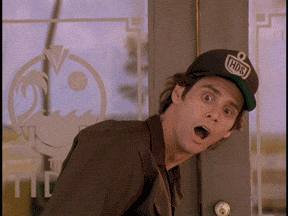You got a ticket? Want to beat it?
Here's how:
THE LAW:
It is illegal under 41-6a of the Utah Code to enter into an intersection when a "steady red circular light" is on.
THE 4 WORK-AROUNDS:
1. It is only illegal to "enter" into the intersection when there is a red light. This means if you are already in the intersection when the light turns red, then you are not in violation of the code. (Yes, go ahead and finish turning left.)
Next...
2. Under the law 41-6a-305, if the traffic light has not detected your car's presence, you can run the red light. (This is literally what the code says!!) If the cameras don't see you, you're legally able to enter the intersection. HOWEVER, only after stopping and waiting for 90 seconds can you run the light. (SO, next time you are waiting at a light FOREVER, and start to communicate to the red light with phrases like "really?"and "this is ridiculous," worry no more! You can legally go through the intersection after 90 seconds of waiting.)
 |
| (Ron Swanson can barely contain himself...) |
Next...
3. On some roads, you can always run a stoplight: If you are turning from a one-way street into another one way street, you can run the stoplight after stopping.
Lastly...
4. According to 41-6a-304, if the traffic light is not sufficiently legible to be seen by an "ordinarily observant person" or in the wrong place, you don't have to abide by it. In other words, if the traffic light has a tree branch blocking it, or it is crooked and facing another lane, you can go through the intersection on red.
So there you have it. Now you know what you can and can't do with traffic lights.
Word of advice for those fighting a ticket: Never claim a yellow light was too short. The problem with this defense is you nearly admit to driving too fast to stop in time. This is because traffic engineers design the lights specific to the speed limit on the road they govern. --- stick with winner arguments instead.
Please share to help your friends avoid a ticket!!








